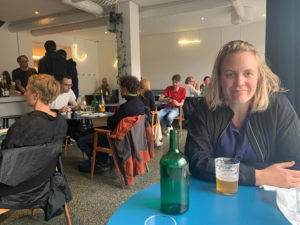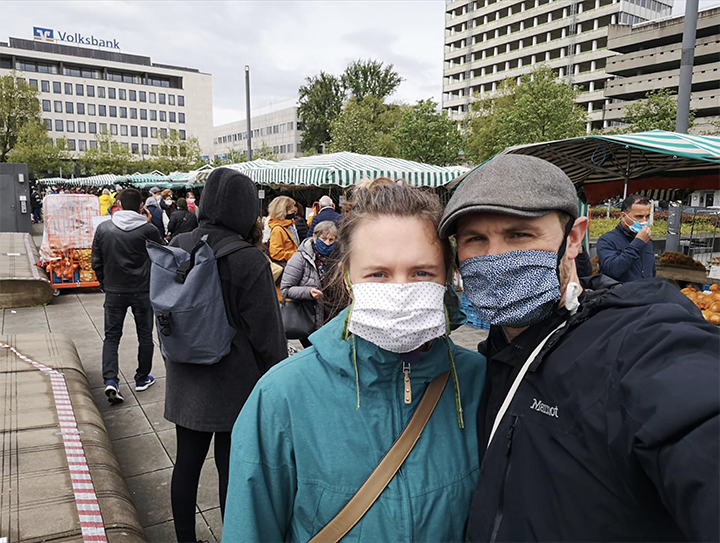The world is embracing a new normal where social distancing will be the norm. The experience of some of the worst affected countries might be useful to India
The outbreak of Coronavirus has led to unprecedented disruption in social and economic life across the world. People in the worst affected parts like China, Italy and Germany after spending more than two months under lockdown, are learning to live with the virus rather than staying huddled up inside their homes and severing all social contact.
Learning new ways of living with social distancing, the world is gravitating towards a new normal. Though the ground realities are very different, there are important lessons that India can learn from these countries.
“To get paranoid will complicate the situation,” feels Jan Peters, who lives in a small town nestled in the northeastern tip of Germany along the Baltic coast. He’s of the view that it’s important to understand the monster to be able to deal with it. A lot of parallel research is going on in various parts of the world for the development of a vaccine, but till that time people have to find ways to get on with their lives. Germany has taken some key steps, Peters informs, which include some restrictions being lifted, after the country prepared itself to deal with all eventualities.
Peters can travel across various provinces, railways are functional, flights have resumed but on a limited basis. More importantly, hanging out with friends in smaller groups is allowed, while people are encouraged to meet outdoors, some bars have also opened. People in Berlin and other major cities are seen sipping beer sitting by the riverside, soaking in the warm summer sun.
The advent of summer means people are going out in the wilderness for hikes, beaches and picnics in smaller groups, informs Peters, who himself is on his way to a nearby island called Rugia to spend the extended weekend with his girlfriend.
In Stockholm, Julia Mariella Wiræus, a journalist, author and radio producer, among many other things, is celebrating her birthday on Saturday when she’ll invite 20-odd friends to “a local boat club to enjoy the sauna.” She’s instructed her friends not to tag more people along, for she doesn’t want the numbers to go beyond 30. Sweden allows hosting of parties if the numbers are not large, outside of the home, preferably outdoors or at a public place.

Julia blames privatisation of health services as the cause of the high percentage of deaths in Sweden, some 4,220 people died out of 35,088 infected. She informs that most of the people who died were “older people” who couldn’t afford good treatment.
Salaries are calculated on an hourly basis, Julia informs. “In my brother’s case, though he’s working 40% of full working hours, his salary deduction is only 5%.” The government chips in and pays money to the employers to be passed the benefit onto the employee so that the latter’s earnings don’t go down substantially, despite employees putting in fewer hours of labour due to the pandemic. Could the Indian government adopt this measure? Such steps prevent the working class from pauperisation.
In Italy, the situation is much better, informs Denise Ripamonti who was in India pursuing academic work and returned to her hometown to Lecco only last week. She’s now undergoing a mandatory two-weeks of quarantine in Lecco, the balcony of her Airbnb accommodation opens into a courtyard and beyond it is Lake Como shimmering under the bright sun. Her husband Simone is a painter who also runs a bar. This week he reopened his bar after a couple of months and is very particular about guests following social distancing norms.
“I’m happy to see people pouring out into the street,” says Ripamonti, feeling the worst is over. Italy was one of the worst affected countries with 2,30,555 cases, more than 32,000 deaths, now there are about 50,000 active cases. She meets her family and friends from the balcony, while they stand on the courtyard a few feet away. Simone has brought provisions for a week. Ripamonti is happy to be back, and there’s a general enthusiasm with the advent of summers to piece together their lives. Ripamonti exhibits cautious optimism.
Similar cautious optimism is seen in other parts of the world, Japanese Prime Minister, Shinzo Abe, while ushering in a new phase of pandemic response, has decided to lift some of the restrictions on Tokyo and the northern island of Hokkaido, was optimistic when he said, “We need to make a new normal. Let’s change our thinking.”

However, British Prime Minister Boris Johnson–one of the very few world leaders infected with the Coronavirus–is in trouble, some even demanding his resignation for violating lockdown rules. He admitted to driving his wife and son 250 miles while Britain was under lockdown.
The situation in Russia and Brazil is precarious, as seen by the fact that Russian President Vladimir Putin promising cash bonuses for the doctors and nurses leading Russia’s battle with the Coronavirus. However, the situation in China is well under control after fears of a second wave of contagion.
Anshuman Varma, an Indian who works in Beijing, lives with his wife and two children in China. He informs that schools will reopen next week, and he has already started going to work. The number of new cases of Coronavirus has shrunk considerably, as claimed by the Chinese health authorities after conducting more than 6 million tests in the last two weeks in Wuhan, the city where the pandemic originated. Only 200 cases were found, most of them asymptomic.
The New York Times reports that Beijing’s major focus is getting the economy off the ground after a weeks-long deep freeze. “Young people are feeling the pressure as they enter perhaps China’s toughest job market in the modern era. They are reducing their expectations, taking pay cuts, and in many cases waiting on the sidelines until things get better. Amid the trade war with the US and tensions with Hong Kong, their future looks uncertain.”
Sometimes small things take longer to change. In the new normal, smiles will replace handshakes.
(Cover: Jan Peters with his girlfriend in a local haat in Germany)





